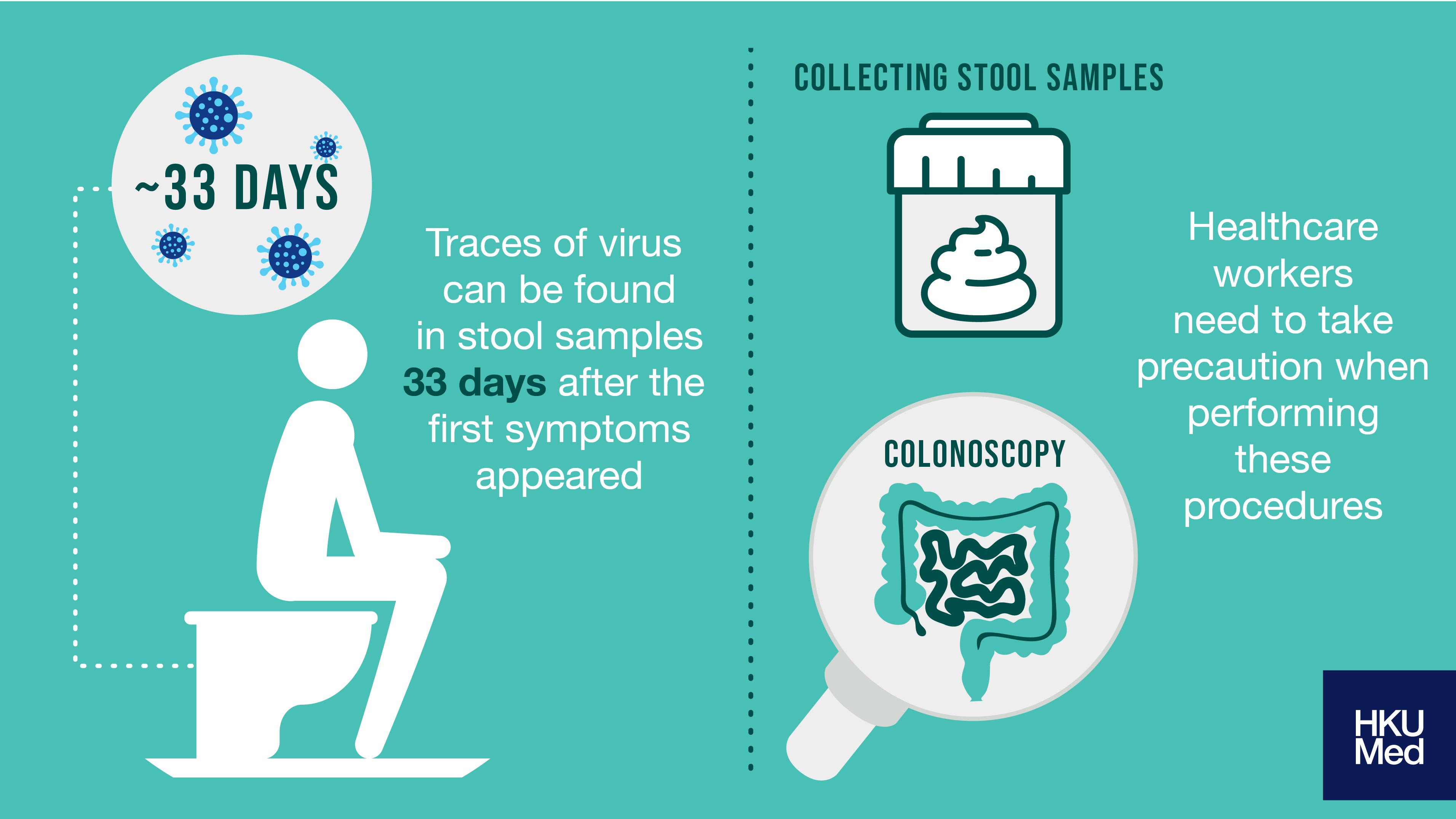Gut (gastrointestinal) symptoms have been reported in patients infected with SARS-CoV-2. A team of experts from HKUMed found traces of the virus in stool samples from infected patients in Hong Kong. Genetic material of the virus (viral RNA) was detected in 9 of the 59 patients (15.3%) in the study, suggesting that the virus may be able to spread via the ‘fecal-oral route’, whereby the virus is transmitted via unhygienic practices from feces to the mouth, for example: when a person does not wash hands properly after going to the toilet then touches or prepares food that is eaten by other people.
The study also analyzed 4,243 patients from 6 countries and found that 17.6% of these patients also had gut symptoms. Common symptoms included eating problems, vomiting, diarrhea and stomachache.
Key takeaways from the study:
- The virus was found in stool samples even in patients who did not show any gut symptoms.
- Patients who had diarrhea had more viral RNA in their stool.
- The disease was more severe in patients who had gut symptoms than those who did not.
- 48.1% of patients had detectable viral traces in stool when they were ill.
- 70.3% of patients had viral RNA in their stool even when they tested negative for the virus in their lungs.
- The virus was still present in stool samples 33 days after the first symptoms appeared.
This work shows that it is reasonable to test patients with gut symptoms for SARS-CoV-2 even when they do not have fever or respiratory symptoms. As the virus persists longer in the gut, healthcare workers must take precautions when collecting stool samples or performing a colonoscopy, a procedure that uses a probe to examine inside the large intestine (colon).
To read the original article published in Gastroenterology, click here.
